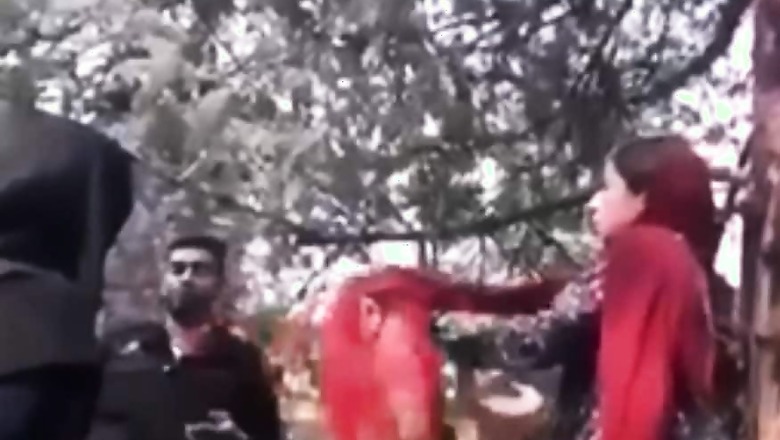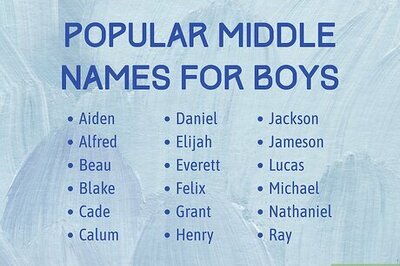
views
Tehran: A grainy video of female officers from Iran's morality police assaulting a young woman whose headscarf only loosely covered her hair has sparked a new public debate on the decades-long requirement for women in the Islamic Republic.
While officials of all ranks up to President Hassan Rouhani have weighed in on the incident, it has seen women in Iran not only question the rule that they must wear the hijab in the street but also their faith in the theocratic Shia-dominated nation.
Even before the 1979 Islamic Revolution, the long, flowing black robes for women known as chadors and the headscarves, or hijabs, were both a political and religious symbol in the Shiite-dominated nation.
"I used to be a person who would always say her prayers and deeply believed in God," said Afrouz, 28, who like other women who spoke to The Associated Press in Tehran would only give their first name for fear of retribution.
"I would always say grace before having a meal. Right now, I believe in none of those things." The video appeared online last week, with activists suggesting it was taken in Tehran, though nothing in it offers hints at its location.
It shows a young woman with a long red scarf loosely covering her head, her hair clearly showing, being surrounded by three morality policewomen wearing chadors, who grab her.
One grabs her by the throat. She screams, they pick her up off her feet. She then ends up on the ground, weeping as another woman comforts her before the officers grab her again.
"Why are you hitting me? You have been destroying us for 30 years," she is heard shouting at one point.
The video went viral on social media and drew an immediate reaction from officials. Iran's interior minister, Abdolreza Rahmani Fazli, ordered authorities on Thursday to investigate the incident soon after Masoumeh Ebtekar, a female vice president for women's affairs, condemned the police's "violent" approach to the situation.
Reformist lawmaker Tayebeh Siavoshi said Saturday that the policewoman seen in the video grabbing the young woman's throat has been suspended pending the investigation. None of the women in the video have been identified.
"Imposing (force on women) will lead nowhere," she said.
President Rouhani, a cleric who is considered a moderate within Iran's political system, also criticized the morality police in a speech on Saturday. The police force's stated mandate is "promoting virtue and preventing vice."
"Grabbing people's collars to promote virtue will not work," Rouhani warned. "You cannot do it by being aggressive." Hard-liners, however, have dismissed the video as a foreign plot.
The hard-line Kayhan daily on Sunday described the video as "strange and suspicious," noting foreign activists have promoted it.
Previously, hard-liners pointed to a campaign challenging the hijab launched by a journalist at the Persian service of the Voice of America, which is funded by the U.S. government.
On Monday, judiciary chief Ayatollah Sadegh Amoli Larijani said he supported the morality police, adding that "law enforcement should not withdraw a single inch." But on the streets of Tehran, women are openly discussing the video and their own encounters with morality police.
"I think that it was very unnecessary the way that the police, or the morality police, handled the situation," said Hamraz, 27, an Austrian national born to Iranian parents who is on vacation in Tehran.
"It was very unfortunate that it was caught on camera, but in a way it was good that everyone got to see how people are being treated: very unjust and very unfair." Sahar, a 25-year-old university student, agreed.















Comments
0 comment